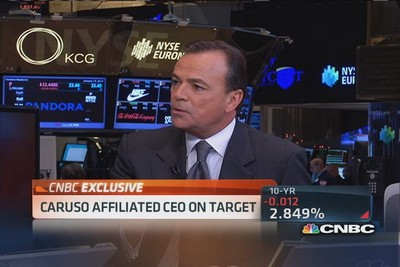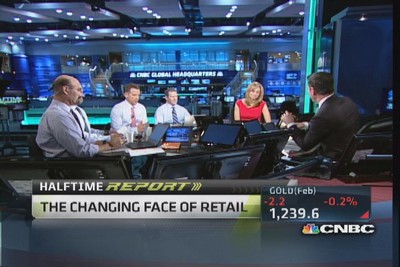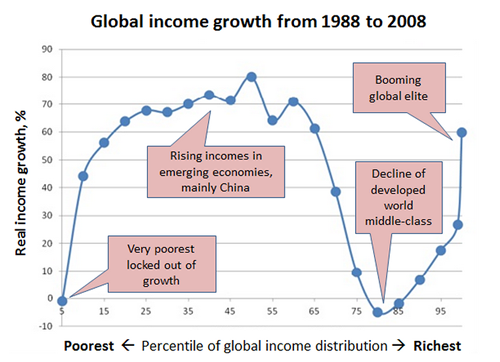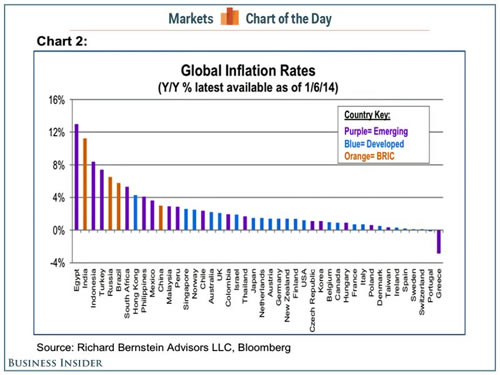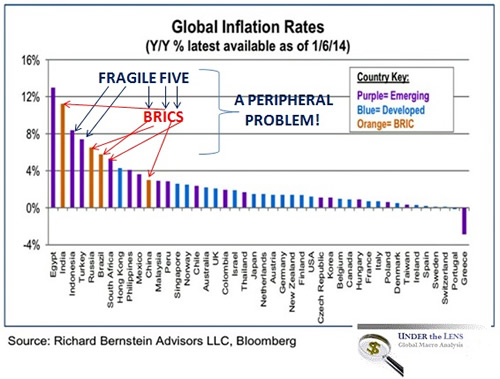|
JOHN RUBINO'SLATEST BOOK |
||||||||||||||||||||||||||||||||||||||||||||||||||||||||||||||||||||||||||||||||||||||||||||||||||||||||||||||||||||||||||||||||||||||||||||||||||||||||||||||||||||||||||||||||||||||||||||||||||||||||||||||||||||||||||||||||||||||||||||
"Currency Wars "
|
"SULTANS OF SWAP" archives open ACT II ACT III ALSO Sultans of Swap: Fearing the Gearing! Sultans of Swap: BP Potentially More Devistating than Lehman! |
"EURO EXPERIMENT"
archives open EURO EXPERIMENT : ECB's LTRO Won't Stop Collateral Contagion!
EURO EXPERIMENT: |
"INNOVATION"
archives open |
"PRESERVE & PROTE CT"
archives open |

Fri. Jan. 24th, 2014
MACRO WATCH Q1 2014
NOW AVAILABLE - SUBSCRIBE
�
| JANUARY | ||||||
| S | M | T | W | T | F | S |
| 1 | 2 | 3 | 4 | |||
| 5 | 6 | 7 | 8 | 9 | 10 | 11 |
| 12 | 13 | 14 | 15 | 16 | 17 | 18 |
| 19 | 20 | 21 | 22 | 23 | 24 | 25 |
| 26 | 27 | 28 | 29 | 30 | 31 | |
| Complete Archives |
||||||
KEY TO TIPPING POINTS |
| 1 - Risk Reversal |
| 2 - Japan Debt Deflation Spiral |
| 3- Bond Bubble |
| 4- EU Banking Crisis |
| 5- Sovereign Debt Crisis |
| 6 - China Hard Landing |
| 7 - Chronic Unemployment |
| 8 - Geo-Political Event |
| 9 - Global Governance Failure |
| 10 - Chronic Global Fiscal ImBalances |
| 11 - Shrinking Revenue Growth Rate |
| 12 - Iran Nuclear Threat |
| 13 - Growing Social Unrest |
| 14 - US Banking Crisis II |
| 15 - Residential Real Estate - Phase II |
| 16 - Commercial Real Estate |
| 17 - Credit Contraction II |
| 18- State & Local Government |
| 19 - US Stock Market Valuations |
| 20 - Slowing Retail & Consumer Sales |
| 21 - China - Japan Regional Conflict |
| 22 - Public Sentiment & Confidence |
| 23 - US Reserve Currency |
| 24 - Central & Eastern Europe |
| 25 - Oil Price Pressures |
| 26 - Rising Inflation Pressures & Interest Pressures |
| 27 - Food Price Pressures |
| 28 - Global Output Gap |
| 29 - Corruption |
| 30 - Pension - Entitlement Crisis |
| 31 - Corporate Bankruptcies |
| 32- Finance & Insurance Balance Sheet Write-Offs |
| 33 - Resource Shortage |
| 34 - US Reserve Currency |
| 35- Government Backstop Insurance |
| 36 - US Dollar Weakness |
| 37 - Cyber Attack or Complexity Failure |
| 38 - Terrorist Event |
| 39 - Financial Crisis Programs Expiration |
| 40 - Natural Physical Disaster |
| 41 - Pandemic / Epidemic |
Reading the right books?
No Time?
![]()
We have analyzed & included
these in our latest research papers!
![]()
Book Review- Five Thumbs Up
for Steve Greenhut's
Plunder!
 TODAY'S TIPPING POINTS
TODAY'S TIPPING POINTS 
| THIS WEEKS TIPPING POINTS | MACRO NEWS | MARKET | 2013 THEMES |
FLOWS: Liquidity, Credit and Debt
"BEST OF THE WEEK " |
Posting Date |
Labels & Tags | TIPPING POINT or 2013 THESIS THEME | |||
HOTTEST TIPPING POINTS |
Theme Groupings |
|||||
We post throughout the day as we do our Investment Research for: LONGWave - UnderTheLens - Macro |
||||||
|
||||||
FLOWS - Macro Situational Assessement
The US economy makes up 21% of global GDP. Annual per capital GDP is $51,700. The country's population is 314 million and is forecast to grow by 17 million (or 5.3%) by 2018. The US Current Account deficit is 2.7% of GDP, down sharply from 5.8% in 2006. The government's budget deficit was 8% of GDP in 2012, but forecast to be only around 4% of GDP in 2013. The government's gross debt to GDP is 103%. The Fed, the US central bank, is creating $85 billion of fiat money a month, which is approximately 6% of GDP per year. The economy grew by 2.8% in 2012.
CHINA China's economy is the second largest in the world. It accounts for 10% of global GDP. Per capita GDP is $6,100. The country's population is 1.35 billion and is forecast to increase by 41 million (or 3%) by 2018. China's Current Account surplus is 2.4% of GDP, down sharply from 10% of GDP in 2007. The government's budget deficit was 2.2% of GDP in 2012 and gross government debt was 26% of GDP. It should be noted, however, that the finances of the provincial governments may be a cause for serious concern. The PBOC, China's central bank, is not creating fiat money in a QE-style operation. However, it has accumulated $3.7 trillion in foreign exchange reserves since 1990 by creating an equivalent amount of fiat money. The economy grew by 7.7% in 2012.
JAPAN Japan's economy is the third largest in the world, accounting for 8% of global GDP. Per capita GDP is $46,700. The country's population is 128 million. It is forecast to shrink by 2 million (or 1.7%) by 2018. Japan's Current Account surplus was 1.0% of GPD in 2012, down significantly from 4.9% in 2007. The government's budget deficit was 10% of GDP and gross government debt was 238% of GDP in 2012, much larger than any other industrialized country. Despite this very high level of government debt, it should be noted that the Japanese government can still borrow at extremely low interest rates, only 0.6% per annum on 10-year government bonds. The Bank of Japan, the central bank, is creating the equivalent of $70 billion per month or 14% of GDP per year - even more than the US central bank relative to the size of the US GDP. Japan's economy grew by 2.0% in 2012.
GERMANY Germany's economy accounts for 5% of global GDP. Its per capita GDP is $41,900. The country's population is 82 million. It is forecast to decline by 1 million (or 1.2%) by 2018. Germany's Current Account surplus was 7% of GDP in 2012 and it has averaged more than 6% of GDP per year since 2005. That makes Germany's trade surplus one of the main sources of the global imbalances destabilizing the world economy. The government's budget was balanced in 2012 and the government's gross debt to GDP amounted to 82%. Being part of the Euro Zone, Germany's monetary policy is controlled by the European Central Bank. The German economy grew by 0.9% in 2012.
BRAZIL Brazil's economy accounts for 4% of global GDP. Its annual per capita GDP is $11,400. The country's population of 198 million is expected to increase by 8 million (or 4.3%) by 2018. Brazil's Current Account has swung from a surplus of 1.6% of GDP in 2005 to a deficit of 2.5% of GDP in 2012. The government's budget deficit was 2.7% of GDP and its gross government debt was 68% of GDP in 2012. The economy grew by 0.9% last year.
THE UK The UK economy accounts for 3% of global GDP. Per capita GDP is $39,000. The country's population is 63 million and is expected to increase by 3 million (or 4.7%) by 2018. The UK's Current Account deficit was 3.8% of GDP in 2012. The government's budget deficit was 7.9% of GDP and the government's gross debt to GDP was 89% in 2012, twice as high as in 2007. The Bank of England has suspended its QE program for the time being. However, it did aggressively create fiat money and buy government bonds between 2008 and 2012; and, as a result, it now holds roughly 30% of the government's debt - a much larger share than in any other country. The UK economy grew by 0.2% in 2012.
INDIA India's economy makes up 3% of global GDP. Its annual per capita GDP is $1,500. The country's population is 1.25 billion and is expected to surge by 100 million (or 8%) by 2018. India's Current Account deficit is 4.8% of GDP and has deteriorated steadily since 2006. The government's budget deficit was 8% of GPD and gross government debt to GDP was 67% in 2012. The economy grew by 3.2% in 2012.
Note: The data cited above was sourced from the IMF and the United Nations Statistics Division. The % share of global GDP numbers are for 2011. All other data refer to 2012 unless otherwise indicated. .
|
||||||
| THESIS & THEMES | ||||||
| MOST CRITICAL TIPPING POINT ARTICLES THIS WEEK - January 18th - January 25th | ||||||
| RISK REVERSAL | 1 | |||||
| JAPAN - DEBT DEFLATION | 2 | |||||
| BOND BUBBLE | 3 | |||||
EU BANKING CRISIS |
4 |
|||||
| SOVEREIGN DEBT CRISIS [Euope Crisis Tracker] | 5 | |||||
| CHINA BUBBLE | 6 | |||||
COMMERCIAL REAL ESTATE - Indoor Mall Retail In Trouble A 'tsunami' of store closings expected to hit retail 01-22-14 CNBC A New Era in Retail Fewer Shops and Smaller Stores. On Tuesday, Sears said that it will shutter its flagship store in downtown Chicago in April. It's the latest of about 300 store closures in the U.S. that Sears has made since 2010. The news follows announcements earlier this month of multiple store closings from major department stores J.C. Penney and Macy's. Further signs of cuts in the industry came Wednesday, when Target said that it will eliminate 475 jobs worldwide, including some at its Minnesota headquarters, and not fill 700 empty positions. Experts said these headlines are only the tip of the iceberg for the industry, which is set to undergo a multiyear period of shuttering stores and trimming square footage. Shoppers will likely see an average decrease in overall retail square footage of between one-third and one-half within the next five to 10 years, as a shift to e-commerce brings with it fewer mall visits and a lesser need to keep inventory stocked in-store, said Michael Burden, a principal with Excess Space Retail Services. "I believe we're going to hear a lot more announcements in the coming months," Burden said. It's "an indication that there is a shift in the retail environment and it's one that will continue." (Read more: 5 problems retailers must fix in 2014) January is typically a busy month for retailers to announce store closings. According to the International Council of Shopping Centers, 44 percent of annual store closings announced since 2010 have occurred in the first quarter. But this year's closings are likely indicative of a new trend, sparked by more and more shoppers turning to the Web, experts said. This holiday, online spending increased by 10 percent on desktop devices—a number that will likely grow another 2 percentage points when factoring in the role of mobile devices, according to data tracker comScore. Paired with a compressed holiday shopping calendar and a spate of freezing weather across much of the U.S., online shopping contributed to a nearly 15 percent decline in foot traffic this past holiday season, according to ShopperTrak. "Stores are making a long-term bet on technology," said Belus Capital Advisors analyst Brian Sozzi. "It simply doesn't make strategic sense to enter a new 15-year lease as consumers are likely to continue curtailing physical visits to the mall." Future of American Malls
Rick Caruso, Caruso Affiliated founder and CEO, discusses the future of American malls and explains what shopping malls need to do to become relevant again. "Retail brick and mortar has a great future," Caruso says.
Sozzi said that after a profitable but below-expectations holiday season, the retail industry will face its second "tsunami of store closures across the U.S.," only a few years after what he called the "fire sale holiday season of 2008." During the recession, the number of shopping center vacancies rose by 5.5 percentage points to 11 percent, according to ICSC data, and has since recovered only 2.1 percentage points. In addition to J.C. Penney—which announced last week that it will close 33 stores—there are about a dozen retailers that still have too many stores, Sozzi said. Among them: American Eagle, which needs to move some of its aerie lingerie locations into its main stores; Aéropostale, which is on track to close 175 stores over the next few years; and Wal-Mart, which has about 100 stores in the U.S. producing same-store sales declines deeper than 3 percent, Sozzi said. (Read more: JC Penney closing 33 stores, slashing 2,000 jobs) As for Penney's, Wells Fargo analyst Paul Lejuez said that its store closures are a step in the right direction, but they barely scratch the surface of how many are needed. "With mall traffic trends very challenging and J.C. Penney facing its own significant company-specific issues, we do not believe a 1,000-plus store fleet is appropriate," Lejuez said in a research note. "In our view, the company needs to close several hundred stores to operate more efficiently, but that is not easy to accomplish overnight." Retailers need a new approach That's not to say there aren't a number of young retailers who still have plenty of room to build their store base, Lejuez said. Among them: Lululemon and the fashion-forward Michael Kors and Vince brands, which both recently went public. Kors, which increased its store base by nearly 100 stores last year, is on track to open 50 U.S. stores in 2014. In a separate note, Lejuez said that the ideal way for young brands to build a retail business today is very different than it was 20 years ago. These days, he said, it makes more sense for a retailer to have half the number of stores they once thought appropriate, and instead concentrate on a small store network and e-commerce business. This will take time to accomplish, however, as the vast majority of store locations are leased and not owned, making them harder to unload, he said. "There is often a mismatch between the number of stores retailers operate today compared to how many they would choose to operate if they had to do it all over again," Lejuez said. (Read more: Without rebirth, malls face extinction: Developer) But it's not just the number of stores that are shrinking—it's also their size, said David Birnbrey, chairman of retail real estate advisory group The Shopping Center Group. As fewer shoppers buy items at the physical store, retailers don't require the same inventory levels to be kept in an attached storage room. Buy retailers with strong e-commerce: Trader
CNBC's Courtney Reagan dissects the latest action in the retail sector, saying retailers need to ensure a strong online presence. FMHR trader Pete Najarian agrees the best names in e-commerce are buys.
By placing more of their stock in fulfillment centers, they can shrink their stores to cut back on commercial real estate expenses, Birnbrey said. Although retail rents are still well below where they were prior to the recession, they have begun to stabilize, and are expected to show a slight uptick in 2014, according to CB Richard Ellis. "I think stores are typically downsizing right now, and I think they're doing it because they had unsustainable inventory levels," Birnbrey said. Steering clear of traditional malls One big shift in store closings has come from retailers shying away from indoor malls, instead favoring outlet centers, outdoor malls or stand-alone stores. Although new retail construction completions are at an all-time low, according to CB Richard Ellis, the supply of new outlet centers has picked up in recent quarters. "There's no question that mall stores are closing quicker than open air, as far as the department stores," Birnbrey said. (Read more: Showrooming left in the dust as shoppers go online) Rick Caruso, founder and CEO of Caruso Affiliated, said at the recent National Retail Federation convention that without a major reinvention, traditional malls will soon go extinct, adding that he is unaware of an indoor mall being built since 2006. "Any time you stop building a product, that's usually the best indication that the customer doesn't want it anymore," he said. But retailers aren't throwing in the towel just yet. Turning brick-and-mortar shopping into a retail experience was one of the main topics discussed at the NRF convention this month, with retailers brainstorming ways to integrate targeted mobile couponing and high-tech gadgets to entice shoppers who may have been lost to the Web. "They're not giving up at all," Birnbrey said.
|
01-23-14 | US INDICATORS CONSUMPTION RETAIL
GROUP RETAIL |
16 - Commercial Real Estate | |||
| TO TOP | ||||||
| MACRO News Items of Importance - This Week | ||||||
GLOBAL MACRO REPORTS & ANALYSIS |
||||||
| 01-20-14 | ||||||
| SHADOW BANKING - REITS & CMBS Growth
Competition for banking business lurks in the shadows 01-17-14 Tracy Alloway in New York Tighter rules for commercial lenders drive growth in shadow banking, writes Tracy Alloway
Cocktails, cabanas and credit quality were some of the talking points at a commercial real estate conference held this week in Miami, as attendees swapped their overcoats for beachwear and sat down to discuss the rebounding market. The annual summit has for years been a calendar highlight for the Wall Street bankers who originate commercial real estate loans and then bundle them into bonds known as commercial mortgage-backed securities (CMBS). This year’s event was held at the Fontainebleau, a more upscale – and, crucially, larger – venue that offered attendees an on-site nightclub and a spa with “Swarovski crystal pedicures” on its menu of services. The sprawling new location is symbolic of the broader recovery in some parts of the securitisation market. Sales of CMBS totalled $102bn last year, the highest since the financial crisis, and issuance is expected to increase further in 2014. It is also indicative of another development: in addition to accommodating the hundreds of bankers who have historically frequented the conference, this year’s Miami gathering played host to an expanded selection of non-bank lenders. Most notable were the large numbers of representatives from non-traded real estate investment trusts (Reits) – tax-friendly investment vehicles that invest in property and also originate new loans. While that is a deeply uninteresting description of their activities, these non-traded Reits are often included under the far more intriguing label of “shadow banks”. There has been an increasing amount of talk recently about the growth of “shadow banking” – most of it supremely unflattering. Shadow banks, we are often told, are the unregulated institutions that lurk in the dark corners of the financial system – away from the supervised activities of run-of-the-mill commercial banks. The frequent implication is that these indistinct entities are growing as new financial regulation begins to have an impact on the activities of traditional banks, and that this growth poses a threat to the safety of the overall financial system. Yet, just like banks, shadow lenders serve a purpose – they create the credit and securities that are demanded by investors and, hopefully, supported by the needs of the real economy. The growth of shadow lenders is therefore demonstrative of a truism of finance: squeeze one segment of the system and the activity you are attempting to control is likely to manifest itself elsewhere. If banks retreat from the business of manufacturing in-demand assets such as CMBS or originating loans, you invite growth of non-bank lenders which do the same thing in a cheaper and more efficient way. Reits enjoy lighter regulation, benefit from tax efficiencies and possess increasingly deep pockets that allow them to make aggressive loans to property developers. Their role in the market is growing – as is that of hedge funds and “business development companies” that provide capital to middle-market companies, and a whole host of other speciality financiers. At the Miami conference, upstart non-bank lenders carried pitch books to sell their businesses to yield-hungry investors, raising expectations that more than 10 new firms will this year begin contributing loans to CMBS deals, according to Kroll Bond Ratings. While it’s fair to worry about the rise of shadow lenders themselves, it seems there is perhaps also an under-appreciated danger: the possibility that non-bank lenders will encourage riskier behaviour at larger banks that now find themselves compelled to try to compete with the shadows. Competition is increasing and the poolside bonhomie that pervaded the Miami conference may not last should bankers see their business (or bonuses) eroded by their shadow lender counterparts. Already there is talk of slippage in underwriting standards across the board and the return of certain worrying pre-crisis lending practices as competition heats up. Next week, it’s off to another, even larger, conference – an annual securitisation industry shindig in Las Vegas. Here, too, the event has been moved to more luxurious accommodation than has been booked in prior years – the swanky Cosmopolitan Hotel on the glittering Las Vegas Strip. Expect the mood there to be as buoyant as in Miami, and the attendees just as varied. What will be interesting to see is how regular conference-going bankers react to the proliferation of party-crashers from the world of shadow lending. After all, there are only so many free cocktails to go around. |
01-20-14 | GLOBAL GEO-POLITICAL GROUP-INTERNATIONAL BANKING
SHADOW BANKING |
GLOBAL MACRO |
|||
US ECONOMIC REPORTS & ANALYSIS |
||||||
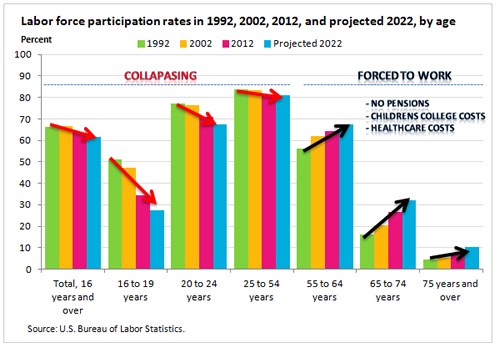 |
01-21-14 | |||||
| CENTRAL BANKING MONETARY POLICIES, ACTIONS & ACTIVITIES | ||||||
 |
01-20-14 | |||||
| Market | ||||||
| TECHNICALS & MARKET |
|
|||||
| 01-23-14 | RISK | |||||
| COMMODITY CORNER - HARD ASSETS | PORTFOLIO | |||||
| COMMODITY CORNER - AGRI-COMPLEX | PORTFOLIO | |||||
| SECURITY-SURVEILANCE COMPLEX | PORTFOLIO | |||||
| THESIS Themes | ||||||
| 2014 - GLOBALIZATION TRAP | ||||||
2013 - STATISM |
||||||
|
Huxley's "Brave New World Revisited" - 2014 Redux 01-21-14 Mike Krieger of Liberty Blitzkrieg blog
It’s always felt a bit bizarre and, indeed slightly embarrassing, that of all the books I have read in my days, Aldous Huxley’s 1932 classic Brave New World was not amongst them. Not only is the book frequently mentioned to make political and social statements about contemporary times, the novel’s concept always caught my interest. I just never got around reading it. Until late last year. I loved this book and was very pleasantly surprised. I was prepared for a more fearful and overwhelmingly dark and twisted experience. While there were obvious elements of those things, it was a much more enjoyable read than I anticipated. Indeed, it was a very human book, as ironic as that might sound. As much as the “Controllers” in Brave New World were indeed in control, the human spirit still managed to bubble to the surface. To the point that the controllers had to designate certain islands for the iconoclasts which inevitably emerged from within the “Alpha” class. All of the drugs, brainwashing and conditioning couldn’t totally break the human spirit. As such, it was a much more hopeful and nuanced novel than I expected it to be. If you haven’t readit, I suggest making it your next book. If you have read it, read it again. However, this post isn’t about Brave New World. While that book is indeed a creative warning, it is still fiction and a work of art more than anything else. Twenty six years after its publication, Huxley wrote Brave New World Revisited, in which he takes stock of the post World War II period. His analysis is grave. He saw the world progressing toward his nightmare much faster than he anticipated. Brave New World Revisited is a brilliant work of non-fiction and filled with almost incomprehensibly prescient predictions. It also provides a great deal of advice to future generations. Advice which we must immediately heed. Of all the solutions Huxley focuses on in Brave New World Revisited, from proper education, to a simple acknowledgment of humanity as moderately gregarious animal not prone to over-organization; the most profound, and I think useful recommendation, is for us to decentralize. This has been a theme of mine and many other writers for some time now. Fortunately, through things like 3D-Printing, Bitcoin and other decentralized crypto-currencies, open source software, crowd funding, social media, etc, the world is moving from centralization to radical decentralization. People will be more connected than ever, but power will be more decentralized. We need to continue to push rapidly in this direction and a whole new incredible world will emerge. Indeed, it is being born as I write this. Several years ago after reading Hayek’s Road to Serfdom I wrote a lengthy post highlighting key excerpts for those who were interested, but didn’t have the time or inclination to read the whole thing. Due to that post’s popularity and effectiveness, I have attempted to do the same with Brave New World Revisited. I hope this inspires you all to read the entire thing. Enjoy. From Chapter 2: Quantity, Quality, Morality
My Thoughts: Yes, indeed we are learning the answer to this right now. Just look around you. From Chapter 3: Over-Organization
My Thoughts: If you talk as Huxley writes above in “polite society” you will be labeled a conspiracy theorist or kook. From Chapter 3: Over-Organization
My Thoughts: Huxley accurately notes that the “will to order” is a natural part of the human psyche. There are disciplines where the “will to order” is actually useful and necessary to human progress; however, he warns that in the social sphere it is deadly and usually ends with totalitarianism. From Chapter 3: Over-Organization
My Thoughts: Huxley clearly sees the sprawling metropolis as incongruent with human nature and freedom. It is a theme he consistently returns to throughout the book. From Chapter 3: Over-Organization
My Thoughts: A simply brilliant and incredibly important warning. From Chapter 3: Over-Organization
My Thoughts: Yep, he predicted our current neo-feudalistic state in 1958. From Chapter 4: Propaganda in a Democratic Society
My Thoughts: Would’ve been nice if we thought about that before we invaded Iraq (of course, the problem is our goal was never to bring Democracy to Iraq in the first place). From Chapter 4: Propaganda in a Democratic Society
My Thoughts: This brings me to a short story I’d like to share. I was on the plane as I was reading this and I put down my book for a second to look around me. I had an aisle seat, and so was at a good vantage point from which to take stock of the plane. I was actually stunned to notice that there was not a single other person reading a book anywhere around me. I actually enjoy the lack of Wifi on flights as it forces me to engage in some old school book reading. To my surprise no one else seemed to see it that way. Horrifyingly, the only people that weren’t dozing off or watching television were still on their smart phones. Even worse, at least five of them seemed to be playing the same game! It looked like some sort of Tetris game with jewels. So despite the lack of Wifi, humanity’s ability for mindless entertainment and distraction prevailed. Wifi or no wifi, these folks were going to be on their “smart”phones one way or the other. From Chapter 5: Propaganda Under a Dictatorship
My Thoughts: This is something to always be aware of. Oration to crowds is the most effective form of propaganda distribution and brainwashing. From Chapter 5: Propaganda Under a Dictatorship
My Thoughts: This is why Obama just lies non-stop with zero shame. His strategy is to just stick to the propaganda and go with it at all costs, no matter how irrational and obviously deceptive. From Chapter 6: The Arts of Selling
My Thoughts: That’s probably the scariest and most depressing thing I read. Chapter 6: The Arts of Selling
My Thoughts: It’s simply incredible how clearly he saw all of this more than fifty years ago. From Chapter 7: Brainwashing
From Chapter 8: Chemical Persuasion
My Thoughts: Yep, it is definitely a huge problem that such a huge percentage of the population is drugged up pretty much 24/7. From Chapter 8: Chemical Persuasion
My Thoughts: This is very similar to what Martin Luther King wrote in his “Letter from Birmingham Jail,” in which he states: “Actually, we who engage in nonviolent direct action are not the creators of tension. We merely bring to the surface the hidden tension that is already alive. We bring it out in the open, where it can be seen and dealt with. Like a boil that can never be cured so long as it is covered up but must be opened with all its ugliness to the natural medicines of air and light, injustice must be exposed, with all the tension its exposure creates, to the light of human conscience and the air of national opinion before it can be cured.” From Chapter 9: Subconscious Persuasion
My Thoughts: We are living it and there’s certainly nothing amusing about it. From Chapter 10: Hypnopaedia
From Chapter 11: Education for Freedom
From Chapter 11: Education for Freedom
My Thoughts: Essentially, the reason humanity is able to create such gigantic instances of suffering relates to our higher intelligence combined with our ability to be easily brainwashed and manipulated by the nastiest of humans on the bell curve. From Chapter 12: What Can Be Done?
My Thoughts: His ultimate conclusion, and one with which I agree, is that we need to decentralize to main free.
|
01-22-14 | THESIS | ||||
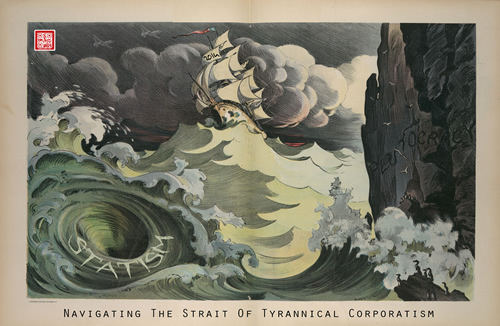 |
01-21-14 | |||||
|
Totalitarian Collectivism "This difference would likely have the long-term effect of fewer people relying on independent web sites or news and information and make it difficult for them to compete with the big guys." - Chancellor Williams When Net Neutrality Becomes Programmed Censorship 01-21-14 BATR.org The worst fears of all free speech proponents are upon us. The Verizon suit against the Federal Communications Commission, appellate decision sets the stage for a Supreme Court review. The Wall Street Journal portrays the ruling in financial terms: "A federal court has tossed out the FCC's "open internet" rules, and now internet service providers are free to charge companies like Google and Netflix higher fees to deliver content faster." In essence, this is the corporate spin that the decision is about the future cost for being connected.
What the Journal is not telling you is that this "uncharted territory" is easy to project. If ISP’s will be able to charge varied rates or decide to vary internet speed, it is a very short step towards selectively discriminate against sites based upon content. Do not get lulled into thinking that constitutional protective political speech is guaranteed. Once again, the world according to the communication giants paint a very different interpretation as the article, Verizon called hypocritical for equating net neutrality to censorship illustrates.
The response from advocates of the Net Neutrality standard, that is about to vanish, sums up correctly.
� Prepare for the worst. The video, Prepare To Be Robbed. Net Neutrality Is Dead!, which includes frank language and expletives, provides details that place the use of internet access into question coming out of this appellate decision.
Analyze the implications logically. It is one thing to charge a for profit service like Netflix a higher fee to transverse the electronic bandwidth of a communication network. Selling a membership to an end user is the source of their cash flow. However, most activist political sites usually provide internet users free access to their particular viewpoint and source links. Your internet service provider controls the pipeline that feeds your devices and data connection. No matter which company you pay for this service, you are dependent upon this union. A free WiFi link may well become a memory. Beaming a satellite signal, mostly is an alternative, when DSL, cable or other broadband is not available. No matter what method is used to surf the net, this decision clearly implies that internet access is now a privilege, at the effective discretion, if not mercy; of a provider that allow an account for service. Next, consider the implication that search engines will use this decision to re-work their algorithms lowering their spider bots selection of sites that challenge the "PC" culture. Restrictive categorization used for years by Google, Yahoo and Bing can use this decision as cover to purge dissenting sites even more from their result rankings. It is common knowledge that YouTube censors and targets certain uploads. One particular subject that experiences technical glitches is Fukushima. The video You Tube Censoring Truther Channels explains the drill. Add to the frustration are the ads, especially the ones with no skip option and imagine future requirements for uploading approval. What is next, a paid subscription to use and upload to the service?
Yes, the Ending Net Neutrality Signals A Digital Paradigm Shift. It also means that they could unfairly push sites like (add the name of your favorite sites) out of the way of users if they (the "PC" protectors) didn’t like them, acting as effective censors.
Stephen Lendman writes in Digital Democracy vs. Corporate Dominance: R.I.P. Internet Neutrality?
Ready yourself for the inevitable results! According to Michael Hiltzik, Net neutrality is dead. Bow to Comcast and Verizon, your overlords.
In a digital environment, access to an internet that provides uncensored content at the lowest costs is a direct threat to the corporate economy. Innovation and creative cutting-edge services are clearly marked as competing challenges to the Amazon jungle of merchandising. The big will just get bigger. Then the unavoidable effects from the "all the news fit to report" mass medium, intensifies their suppression of honest investigative journalism. Filtering out the alternative and truth media is the prime objective of this ruling. Eliminating political dissent from the internet is the ultimate implication. What would the net be like without access to the Drudge Report? When the cable or satellite services bundle their programming into a "take it or leave it" format, the choices for the consumer becomes a major financial burden just to watch the few channels that have interest. Applying this pattern to the internet will cause even greater resentment. Just look at the disaster from the Yahoo retooling. That Ms. "wicked witch" MM have pushed up the stock price, but ask any yahoo group member what they think of the new format. This is a classic example of how to turn off users and ruin your product. Subscription services are playing with fire. With the collapse of the main street economy, the added fees to access content that is mediocre at best, is the actual fallout. Like the dinosaur TV networks, the corporatist sites risk total rejection from internet visitors. Totalitarian culturalists are rejoicing with this latest damper on free speech. News by way of government press releases is pure propaganda. How did this happen? For a short explanation history, Nilay Patel writes in The Wrong Words: How The FCC Lost Neutrality And Could Kill The Internet.Credo Action believes that "FCC Chairman Tom Wheeler can undo the Bush-era decision to deregulate broadband Internet providers and allow them to operate outside of the legal framework that has traditionally applied to companies that offer two-way communication services." Such optimism seems naive in light of the real controllers of policy, much the same, for the Supreme Court coming to the rescue. Mark this court decision as the strategic destruction of the internet as a beacon of unfeigned free expression of information and open political speech. The programmers will be working overtime to set up layers of tasks, restrictions and huddlers to jump over. If you think Facebook censorship is bad, get ready for a purely governmental approved net along the Chinese model. SARTRE – January 20, 2014
|
01-21-14 | THESIS | ||||
2012 - FINANCIAL REPRESSION |
||||||
2011 - BEGGAR-THY-NEIGHBOR -- CURRENCY WARS |
||||||
2010 - EXTEND & PRETEND |
||||||
| THEMES | ||||||
| FLOWS -FRIDAY FLOWS | ||||||
| NATURE OF WORK -PRODUCTIVITY PARADOX | ||||||
| GLOBAL FINANCIAL IMBALANCE - FRAGILITY & INSTABILITY | ||||||
| CENTRAL PLANINNG -SHIFTING ECONOMIC POWER | ||||||
| SECURITY-SURVEILLANCE COMPLEX -STATISM | ||||||
| STANDARD OF LIVING -GLOBAL RE-ALIGNMENT | ||||||
| CORPORATOCRACY -CRONY CAPITALSIM | ||||||
CORRUPTION & MALFEASANCE -MORAL DECAY - DESPERATION, SHORTAGES.. |
||||||
| SOCIAL UNREST -INEQUALITY & BROKEN SOCIAL CONTRACT | ||||||
Every elite in Davos ought to see and understand this chart
Lower income percentiles have seen monster growth since the late 80s. This growth represents the emerging economies and the rise of the Chinese middle class. Then you have the developed world middle class, which has seen almost no real income growth over the last few decades (which probably explains a lot of the current angst over inequality). Then you have the rise of the ultra-elite, the global 1%, which has done fantastically well during all this time. As Plunkett puts it. |
01-22-14 | SOCIAL UNREST |
||||
| CATALYSTS -FEAR & GREED | ||||||
| ECHO BOOM - PERIPHERAL PROBLEM | ||||||
ECHO BOOM - Inflation Correlation to Social Unrest Here Are The Inflation Rates For Every Major Economy In The World 01-22-14 BI Inflation was a big story in 2013 because it was so surprisingly low. Inflation could be the big story once again in 2014 as it could be the year when it comes back in a big way. For some context here's a chart of current inflation rates around the world from market guru Richard Bernstein. Bernstein believes that weak currencies and high inflation rates is bad news for the emerging markets. EMERGING MARKETS "When productivity fails to be a competitive advantage, then countries have to compete purely on price and devalue their currencies. Devaluing a currency often results in higher inflation rates because the prices of imported goods, both input raw materials and consumer goods, go up. Emerging markets’ current high inflation rates will likely limit emerging market countries’ exchange rate flexibility. Some EM countries are already starting to lose market share as a result." WHAT THIS CHART REALLY SHOWS (from: GordonTLong.com)
|
01-23-14 | THEMES | ECHO BOOM |
|||
| GENERAL INTEREST |
|
|||||
| TO TOP | ||||||
|
||||||
Tipping Points Life Cycle - Explained
Click on image to enlarge
TO TOP
�
TO TOP


























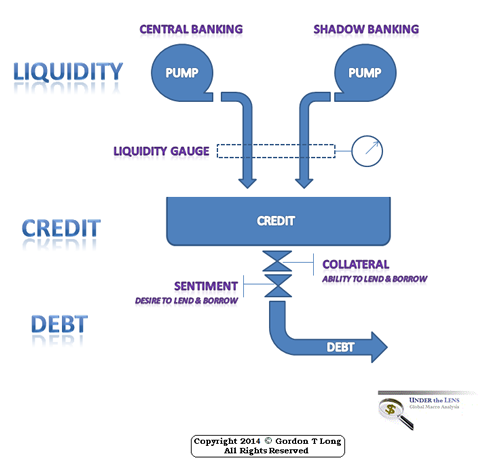

 THE UNITED STATES
THE UNITED STATES
